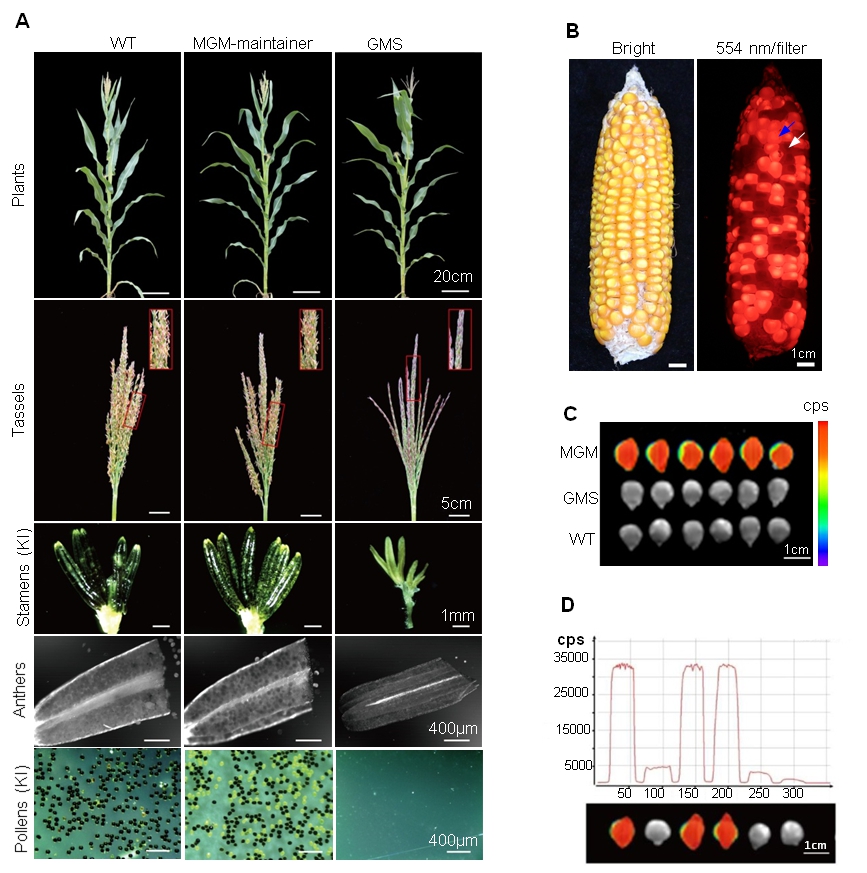One-step Generating Next-Generation Crop Hybrid Seed Production in Maize Had Been Developed
Male sterility (MS) in crops is a valuable trait for both seed production efficiency and quality in the seed industry. Crop hybrid technologies have contributed to the significant agricultural production worldwide in the past 4 decades. However, designing and maintaining a hybrid production line at a genic male sterility (GMS) application has always been complex and laborious. On July 8, researchers from Institute of Crop Science, Chinese Academy of Agricultural Sciences (ICS-CAAS), published an "one-step" strategy using genome editing technology entitled Genome Editing Enables Next-Generation Hybrid Seed Production Technology on Molecular Plant. The demonstrated study had well addressed the challenges on both creating GMS line and its maintainer line through a single transformation. In view of the huge industrial application potential of the research, Eurekalert, a global science and technology news service website operated by the American Association for the Advancement of Science (AAAS), released the progress news as soon as the paper was published.
The researchers from ICS-CAAS used CRISPR-Cas genome editing technology to delete the functional domains of a maize fertility gene, thereby creating a nuclear sterile line. Simultaneously, they used the accuracy of gene editing technology to make it compatible with the designed maintainer technology elements, thus creating a manipulated GMS maintainer (MGM) line. The MGM line has the restored the male flower fertility in sporophyte, only being inherited through female gametes and sortable markers for either MGM or GMS seeds. Therefore, the seeds of maintainer and GMS can be identified by naked eyes or machines due to their different luminescence characteristics, so as to achieve non-destructive sorting. The sorted sterile line is used for the female parent of hybrid seed production, and the maintainer seed is used for the production of maintainer and sterile lines in the next production year. Using this technology into new hybrid varieties, a stable, reliable and efficient seed production can be achieved.
This work was supported by grants from the Agricultural Science and Technology Innovation Program of Chinese Academy of Agricultural Sciences and Beijing Municipal Science and Technology.
Full article hyperlink at https://www.cell.com/molecular-plant/fulltext/S1674-2052(20)30181-7

